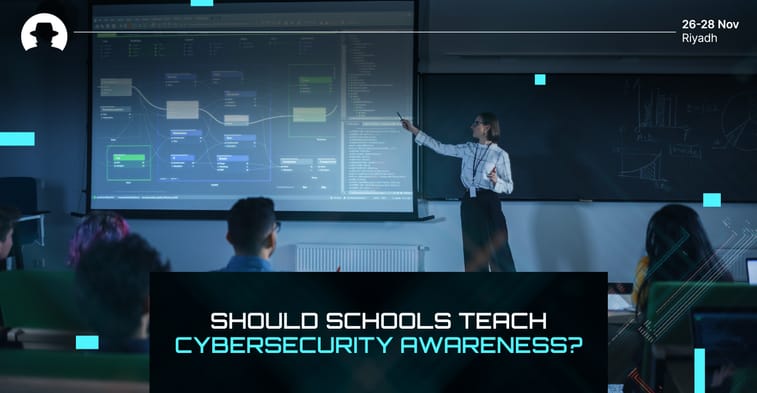
When privacy creates blind spots: the exploitation of privacy-first tech
New research reveals how privacy-first technologies are creating fraud blind spots, as AI-driven attacks scale faster than detection capabilities.
Read More
Worldwide, 5.35 billion people now use the internet. The average person spends 6.5 hours online every day. More individuals under the age of 24 have access to the internet than those age 25 and older – with 75% of 15-24 year olds globally now having access to the internet, compared to 65% of those over 25.
Young people are using digital devices. A lot. At the same time, the World Economic Forum has reported a global cyber workforce shortage of about 4 million professionals, and growing.
The large community of young, engaged internet users offers a potential pool of talent to fill the workforce gap in cyber. So should schools be teaching cybersecurity skills as part of their curriculum?
The cybersecurity sector is an increasingly attractive prospect for school students considering their career options.
Cybersecurity is set to grow faster than average growth rates for other industries – in the US for example, the Bureau of Labor Statistics projects it’ll grow at seven times the rate of the average industry. In Saudi Arabia, the cybersecurity market is expected to grow at a CAGR of 7.2% until 2029. And this is echoed in growth forecasts around the world – the demand for cybersecurity skills will continue to increase, as the sector expands to keep pace with the digitisation of almost every industry.
Cybersecurity also offers a vast array of entry points for aspiring professionals; some that require formal education, and some that don’t. Salaries in the sector are rising, and there’s a real push within the field of cybersecurity to welcome in more diverse talent.
There are more jobs available in cybersecurity than there are qualified candidates. So young people who decide to work in this sector have real potential for progression as they develop their skills and experience.
All of that being said, cybersecurity isn’t an obvious career path for many school students. It doesn’t come up in conversation as an appealing prospect as often as it should – and a lot of that is down to lack of awareness.
Integrating cybersecurity education into school curriculums at an early age, either as a requirement or an optional subject, could inspire a new generation of cybersecurity professionals. They’d get a look into the wide range of possible roles available to them in the sector, and have the opportunity to explore key skills – both technical and soft skills.
Providing cybersecurity learning at a relatively early age is a forward-thinking approach to respond to the growing need for cybersecurity talent. Governments and industries must brace for continued expansion of the cybersecurity sector – and that has to include measures to ensure a flow of talent into the industry.
Students who have been exposed to cybersecurity knowledge and skills at school will:
All of these factors would help to establish a pipeline of skilled and engaged young people who are ready to meet the challenges and opportunities available in the field of cybersecurity.
Conversation between educators and cybersecurity leaders is essential to develop effective, realistic and relevant strategies for cybersecurity education in schools.
Join us at Black Hat MEA 2025 to share your perspective and meet potential partners – and shape the future together.
Join the newsletter to receive the latest updates in your inbox.

New research reveals how privacy-first technologies are creating fraud blind spots, as AI-driven attacks scale faster than detection capabilities.
Read More
Cybersecurity founders share how Black Hat MEA helps them test ideas, prove product value, and grow their business.
Read More
Cybersecurity is now a leading barrier to financial innovation. New research explains why fraud, legacy systems and risk are slowing payments progress.
Read More